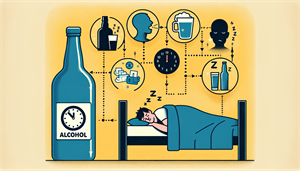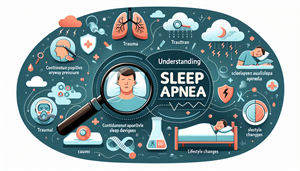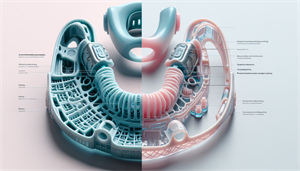
Uncovering the Connection between Alcohol and Snoring
Have you ever wondered why you or your partner snore more loudly after a night of drinking? Snoring is a common issue affecting many people. For some, it’s a mild annoyance, while for others, it can be a sign of a more severe condition like sleep apnea. One of the factors that can contribute to snoring is alcohol consumption. But how exactly does alcohol affect our sleep and lead to snoring? This blog post will explore the connection between alcohol and snoring, and provide helpful tips for reducing snoring after consuming alcohol.
Key Takeaways
Alcohol consumption can lead to an increase in snoring due to its effect on the throat muscles, resulting in reduced sleep quality. Making lifestyle changes and utilizing snoring reduction techniques such as using a humidifier or mouthpiece can help reduce the effects of alcohol on snoring. It is important to seek professional help for persistent or disruptive sleep apnea and snoring, with treatment options including CPAP therapy, surgery, lifestyle modifications and devices.
Alcohol's Role in Snoring
Alcohol and snoring have a close relationship. Drinking alcohol can either cause snoring or worsen existing snoring problems, thereby decreasing sleep quality through several processes. Alcohol has been known to cause relaxation of the muscles in the mouth and throat, which can result in the production of noise as a person breathes in and out during sleep. But what’s the mechanism behind alcohol-induced snoring, and what effects does it have on our overall sleep quality?
How Alcohol Causes Snoring
The primary cause of alcohol-induced snoring is the relaxation of throat muscles, including the epiglottis, potentially leading to airway blockage and subsequent snoring. When we drink alcohol, our throat muscles relax more than they would during normal sleep, making it more difficult for air to pass through and increasing the likelihood of snoring. Besides its direct impact on throat muscles, alcohol can also interfere with our normal sleep cycle, resulting in subpar sleep quality and amplified snoring. This disruption in the sleep cycle can lead to a higher likelihood of experiencing disturbed sleep, making the problem of snoring even worse. In fact, the alcohol make can be a significant factor in worsening snoring issues.
Alcohol and Sleep Quality
Drinking alcohol, especially in excess, can have a significant negative impact on sleep quality. Research suggests that alcohol affects the brain’s normal electrical activity during sleep, resulting in alterations to the sleep cycle and potential sleep issues. Some effects of alcohol on sleep include: Decreased REM sleep Increased wakefulness during the night Fragmented sleep patterns Increased snoring and sleep apnea symptoms The connection between alcohol and sleep quality is evident, as those who consume alcohol in the form of more than two alcoholic drinks for men or one drink for women have been observed to result in a 39% decrease in sleep quality. Even minimal amounts of alcohol consumption can have a negative effect on sleep quality. A study revealed that a decrease of 9% in sleep quality occurred when men consume fewer than two drinks and women consume fewer than one drink. This highlights the importance of being mindful of alcohol consumption, particularly before bedtime, to ensure quality sleep.
The Impact of Alcohol Consumption on Sleep Apnea
Sleep apnea is a sleep disorder characterized by recurrent pauses in breathing during sleep, which can lead to loud snoring and excessive daytime sleepiness. Alcohol consumption can have detrimental effects on individuals with sleep apnea, making it more difficult for them to breathe and worsening their symptoms. This is because alcohol can cause the muscles in the upper airway to relax, resulting in airway obstructions and sleep apnea. We will further examine


